Haiti remains on life support while waiting for assistance
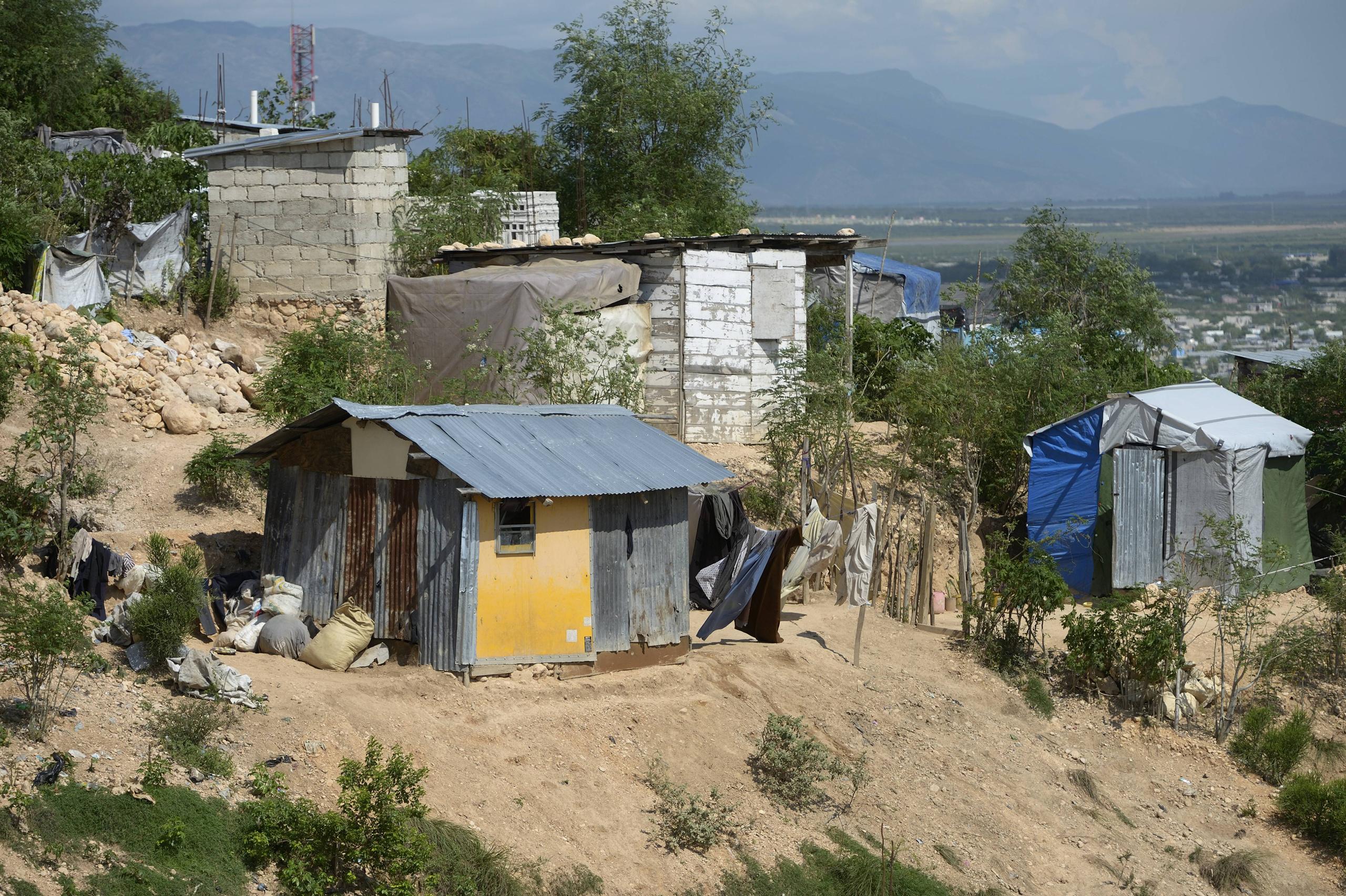
Five years after an earthquake which claimed 250,000 lives, the majority of promises made by the international community remain unfulfilled in Haiti. Petrol from Venezuela is barely keeping the country afloat – but for how much longer?
January 12, 2010. The ground trembles violently in Port-au-Prince, Haiti’s capital. Within a few seconds, the far-from-sturdy buildings collapse like a house of cards, trapping the poorest people in the northern hemisphere. More than 250,000 are killed, 300,000 injured and 1.5 million rendered homeless.
The international community rallies and aid arrives from all over the world. Haiti needs to be rebuilt. Politicians and international representatives call for the world’s first black republic to be “re-created” after facing decades of underdevelopment and political crises.
Five years later, has it all gone according to plan? The big international organisations seem to think so.
“Despite the enormity of the task, the progress made is remarkable,” says the World Bank. UN agencies point to achievements in reconstruction, education and the fight against extreme poverty, while also highlighting the “relatively stable” political situation and “recovering” economy.
Doubts about international aid
This positive viewpoint is not shared by Haitians and the diaspora. Charles Ridoré, a Swiss-based Haitian sociologist, admits that substantial progress has been made: the makeshift tented camps have almost disappeared, the majority of the rubble has been cleared and roads are open to traffic.
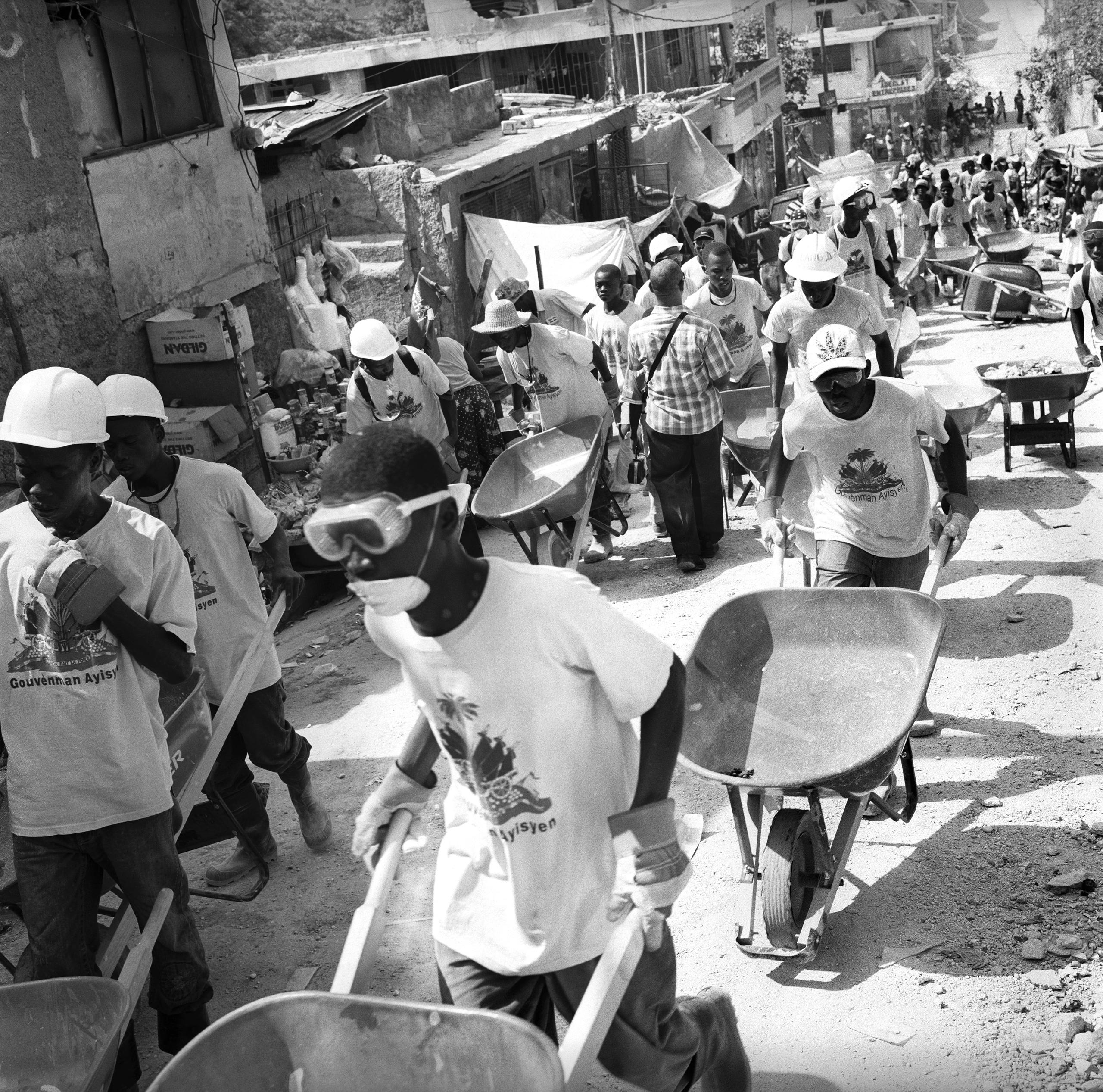
More
Haiti: The perpetual liberation
“The implementation has fallen well short of the expectations created after January 12, 2010,” he says. “The Haitian government – which was already weak and fragile before the earthquake – was unable to steer the reconstruction efforts.”
Despite impressive pledges, the international community lacked a collective vision and a coordinated action plan, according to Ridoré.
“The absence of coordinated aid resulted in Haitian society being sidelined during the whole reconstruction process,” he added.
Frantz Duval, editor-in-chief of the Haitian daily Nouvelliste, has a similar opinion. “The money was spent rapidly and often unwisely,” he says.
Of the $12 billion (CHF12.1 billion) promised after the earthquake, only $4 billion reached Haiti, according to recent criticism made by the Haitian president Michel Martelly. The US, which is very influential in Haiti, provided only 5% of the aid promised.
The responsibility for this has to be shared, Duval emphasises. “The Haitian government did not have the appropriate representatives to manage this windfall,” he suggests.
Health takes a back seat
In this context, apprehensions today are centred on the sustainability of the operations carried out by international organisations. Prominent immediately after the earthquake, many organisations have packed their bags or have drastically reduced their commitments.
Beyond emergency aid, donors are struggling to release the funds necessary for rebuilding a country that has been deprived of material and human resources.
A case in point is the health sector. The hospitals in the affected areas are in the process of being rebuilt.
“Unfortunately, they are often not fully operational due to lack of personnel and equipment,” says Yves Sonnay, head of mission for the Swiss section of Médecins Sans Frontières (Doctors Without Borders) in Haiti.
The funds for reconstruction are not enough to create an effective health service system in a country where access to health was never a government priority, according to Sonnay. Cholera, which was almost certainly imported to the island by Nepali UN peacekeepers, has already claimed 8,500 lives. The government still lacks the means to cope with outbreaks of this “disease of the poor”, which is now considered endemic.
“Faced with the authorities’ lack of capacity and understanding of the implications, we had to open our own cholera treatment centres. And as an exceptional measure, Médecins Sans Frontières pays a portion of the salaries of health ministry employees to work there,” Sonnay says.
Diminishing Venezuelan funds
Another worrying development is the sharp fall in global oil prices. Thanks to loans from Venezuela under the PetroCaribe alliance, Haiti has had access to $1.3 billion worth of oil over the past four years. However, this source of funds is drying up and nobody knows how Haiti will manage to repay its debt to Caracas.
“In an attempt to win the favour of the population, the government distributed food packages and financed several social projects when it should have invested the money in the manufacturing sector,” says Ridoré.
The manufacturing sector hasn’t really taken off as expected post-earthquake. “In the much-hailed Caracol industrial park, only 20,000 jobs have been created when 60,000 were promised. We can talk about a few centres of growth but not real economic development yet,” says Duval.
“This model of assistance shows that donor countries are interested in doing business in Haiti and that the aid they provide might not entirely be altruistic,” says Ridoré. “This is not a problem in itself, but for the moment Haitian workers do not really benefit from this system.”
Meanwhile, there is one sector that holds a lot of promise: tourism. Benefitting from recent political stability, the former “Pearl of the Antilles” is once again attracting foreign visitors – something not seen in 30 years. According to Ridoré, tourism is one of the most dynamic sectors of the Haitian economy.
“Important tourist sites are being restored and new hotels as well as hotel schools are emerging. However, care should be taken to ensure that Haitians profit from the influx of tourists and not just foreign tour operators.”
Swiss have fulfilled commitments
“The Swiss have delivered on their promise of financial support for post-earthquake reconstruction in Haiti,” confirms the foreign ministry in a written response to swissinfo.ch. A total of 12 schools capable of hosting 6,490 students have been constructed or are in the process of being built. They will serve as a blueprint for 60 other schools that will be built over the next four years with the help of funding from the Inter-American Development Bank (IADB).
Swiss assistance has also helped train several hundred workers in earthquake-resistant construction techniques. These techniques will be incorporated into the curriculum of the training course for Haitian houses. This knowledge has also been shared with around 30 NGOs involved in reconstruction projects.
Long-haul projects
In parallel to its post-earthquake activities, Switzerland is also involved in long-term projects in Haiti, most notably in delivering access to clean drinking water, supporting agriculture and protecting nature reserves. Last year, Switzerland allocated CHF16.5 million ($16.4 million) in aid to Haiti. In the coming years, the Swiss Agency for Development Cooperation will focus on three priority areas: governance and rule of law, agriculture and food security, and reconstruction and disaster risk reduction.
(Translated from French by Anand Chandrasekhar)

In compliance with the JTI standards
More: SWI swissinfo.ch certified by the Journalism Trust Initiative
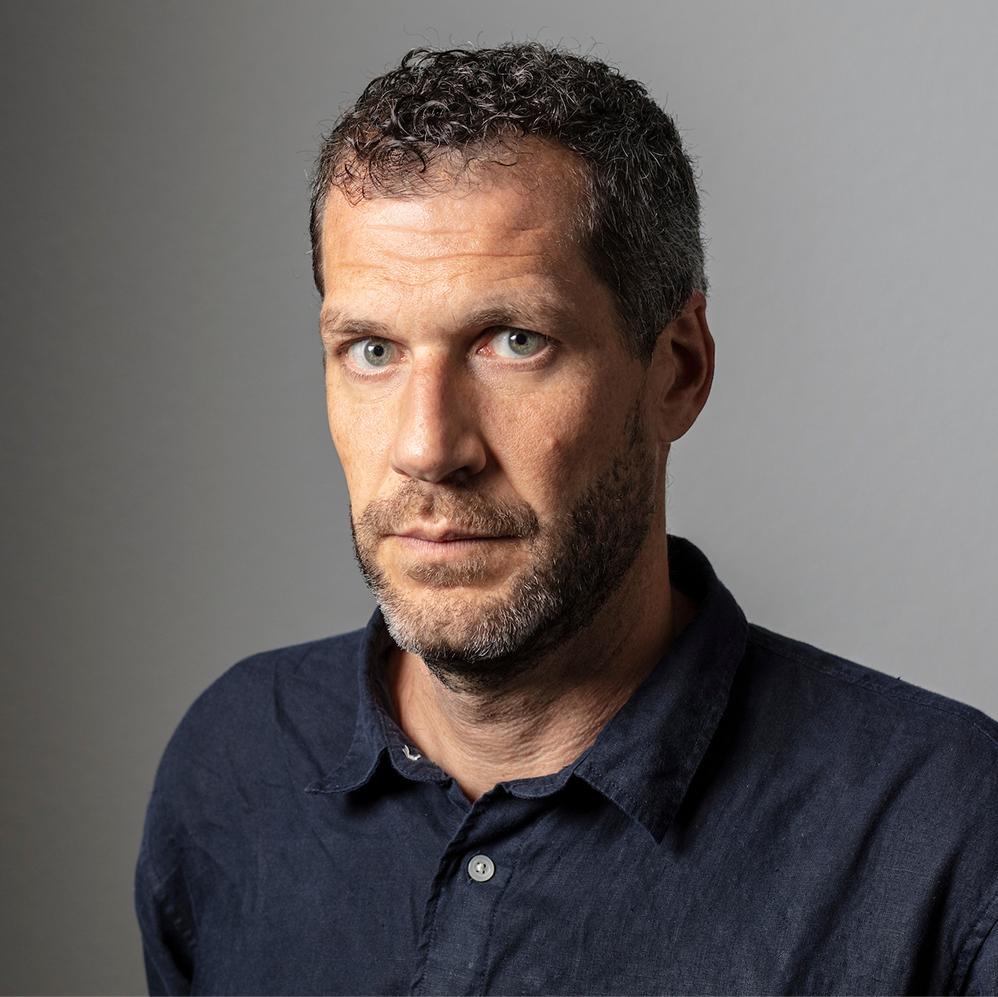

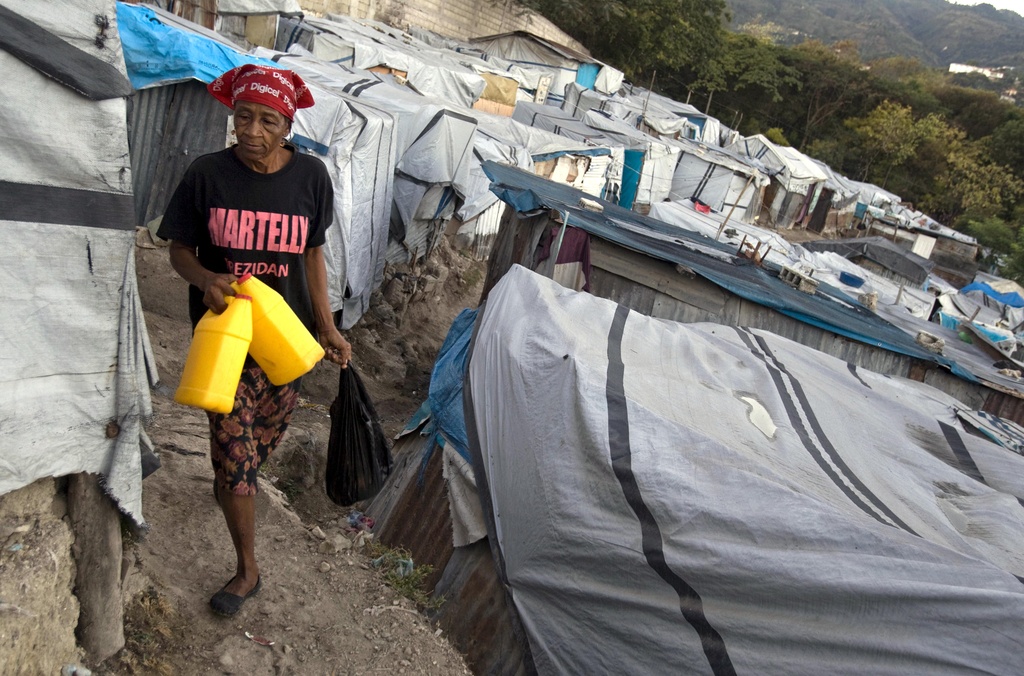
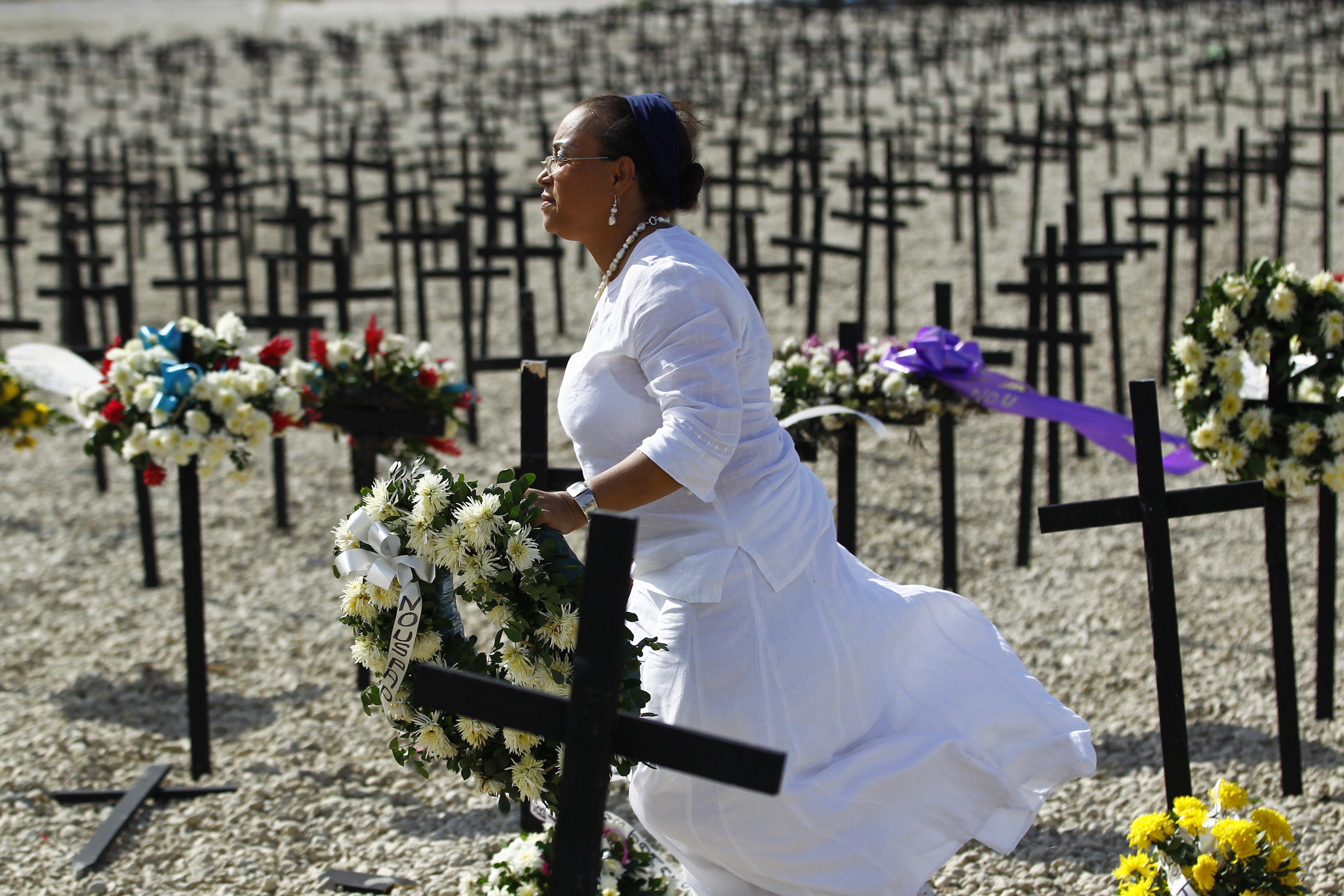
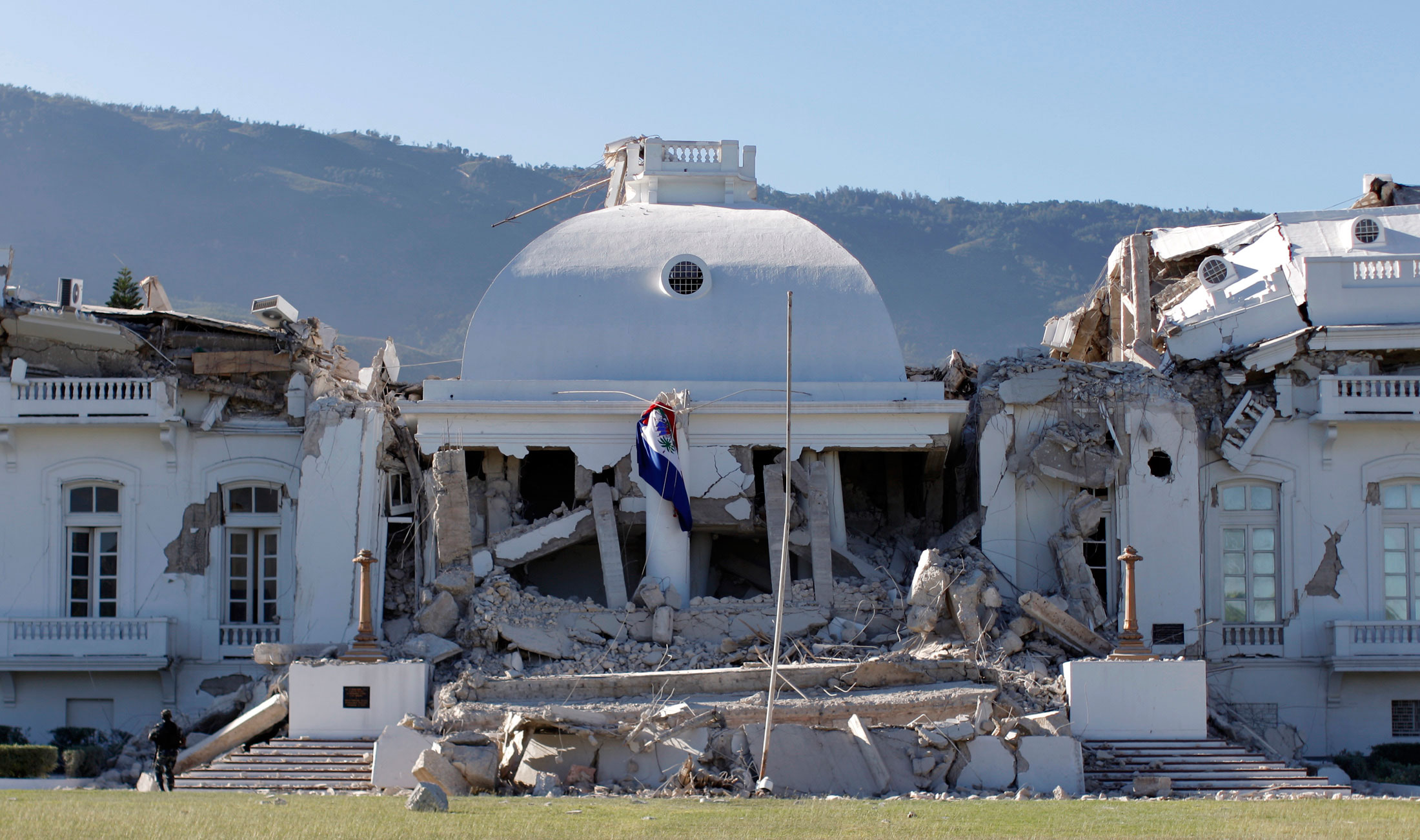
You can find an overview of ongoing debates with our journalists here. Please join us!
If you want to start a conversation about a topic raised in this article or want to report factual errors, email us at english@swissinfo.ch.